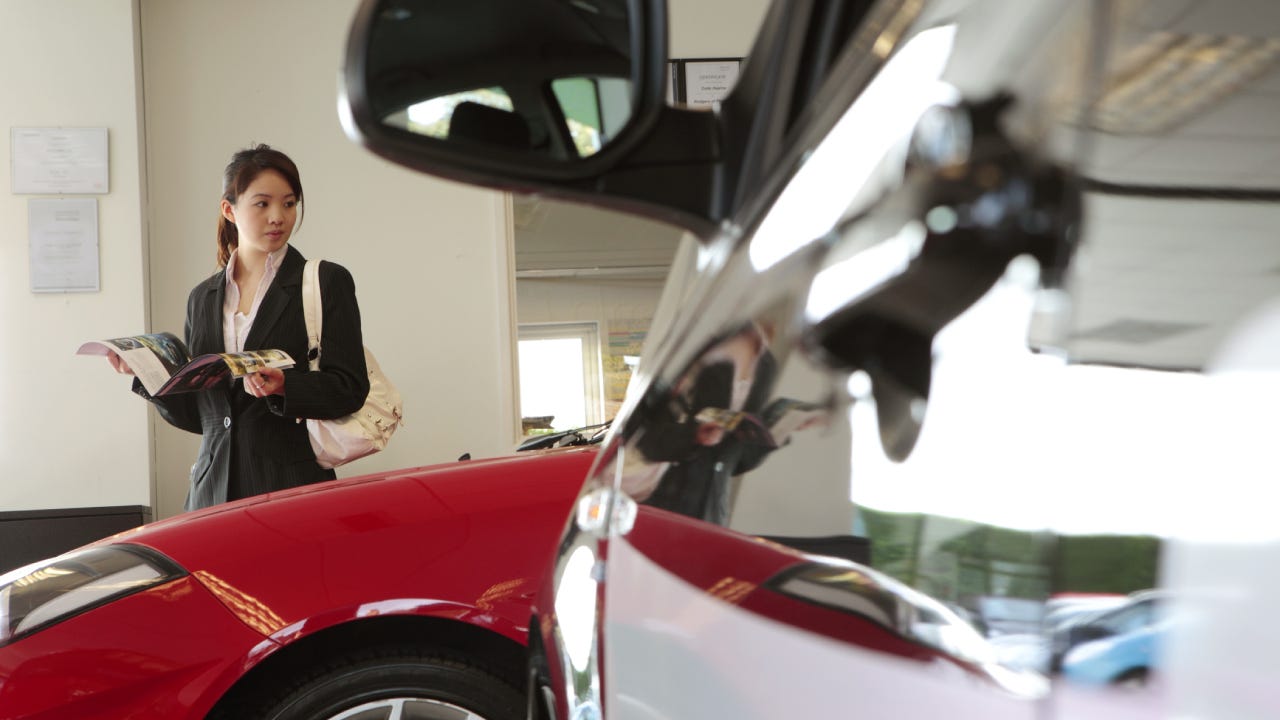Do you need insurance to buy a car?

One of the tasks you will need to tackle when you purchase a new car is buying car insurance. Whether you buy from a dealership or a private seller, most states require you to have car insurance to get behind the wheel of your new ride. Fortunately, there are a few ways you can go about securing coverage.
Do you have to have insurance to buy a car?
Once you have a new vehicle, you will need a policy to drive legally in most places in the U.S. — even just to drive the car home. However, you do not necessarily need to have an active car insurance policy before you purchase a car. In fact, it would be difficult to purchase insurance until you know exactly which car you are going to buy. When you apply for car insurance, the insurer will need vehicle-specific information like the VIN and mileage.
Although buying a car without insurance is technically possible, you will need to show proof of insurance before you can legally drive the vehicle off the lot. If you purchase a car at a dealership, the salesperson will probably ask to see proof of insurance on the vehicle during the transaction. Without an active policy, you would not be legally allowed to take possession of the car, even if you pay cash.
Do I need a new policy for my new car?
You do not necessarily need a new policy in order to purchase a new car. If you already have car insurance, you can probably add the new vehicle to your existing policy. This can be done through contacting your insurance agent or company representative, or through your insurance company’s mobile app or the online customer portal, which you can do while you are waiting at the dealership.
In addition, your existing policy might offer a grace period, which will automatically cover a new car for a limited period of time before you have to officially add it to the policy. Car insurance grace periods are typically up to 30 days, but before you visit the dealership, make sure to confirm how long you have to complete this process with an agent so you know how long the car is covered.
It is important to note that if you rely on a grace period to cover your new vehicle, only your current coverage is extended, which can be problematic. For instance, if you replace an older vehicle that is only covered for liability, your new car would also carry liability-only coverage until it’s officially added to your policy. That means the damage to your new vehicle would not be covered if you get into an at-fault accident within the grace period. For this reason, many insurance professionals recommend that you avoid relying on grace periods to protect your new car and instead suggest adding the vehicle before driving it. Additionally, you should make adjustments to your coverage levels as necessary.
If you do not already have car insurance, you will need to purchase a new policy. Most car insurance companies make it easy to apply for coverage and purchase a new policy online or through a mobile app.
How do I get insurance for my new car?
Obtaining insurance for a new vehicle is relatively easy, especially if you take a few moments to gather some information before making your policy request. To add coverage to your new car, you should:
- Gather the vehicle’s information. To obtain a new policy or add a car to your existing policy, your agent will ask for your VIN, vehicle usage information, registered owner’s information, lienholder or leasing company and current odometer reading.
- Request the correct effective date. To legally drive your vehicle off the lot, your dealer will require that your coverage start the day you purchase the car. Some companies will automatically give you same-day coverage, while others show a default effective date for the day after your request. It can be helpful to specify what date you need your new coverage to start to avoid an unnecessary callback to your insurance company.
- Ask for an ID card and binder. You almost always need to provide proof of insurance to the dealer, usually in the form of a binder. Most car insurance companies or your agent can provide these documents in only a few minutes by emailing them.
You may find it helpful to secure coverage for your new vehicle before heading to the dealership or private seller to pick it up. Buying a new vehicle can be an all-day event, but getting your new car covered ahead of time can make the process smoother. If the deal falls through, you should only need to contact your car insurance company and request that they reverse the changes.
What if I am not buying from a dealer?
Private car sales are becoming increasingly popular, as they often allow drivers to find much better prices than a dealership might offer and could have quicker transactions. If you decide to buy a vehicle from a private seller, you will still need car insurance. The only difference is that the seller is not obligated to verify your coverage before you are allowed to drive off.
Your current car insurance policy will most likely extend coverage through the grace period, even with a private sale vehicle. But if you do not already have coverage, you will need to purchase a policy before you can drive the vehicle home.
Although the seller may not ask to see proof of coverage, driving without insurance still has legal and financial ramifications. You could get pulled over while driving home, which could lead to a number of serious consequences if you do not have proper coverage.
Frequently asked questions
Why we ask for feedback Your feedback helps us improve our content and services. It takes less than a minute to complete.
Your responses are anonymous and will only be used for improving our website.
You may also like

Does car insurance cover your parked car?

Do you need pet insurance for a kitten?

Do you need insurance to register a car?

What are the different types of car insurance coverage?





